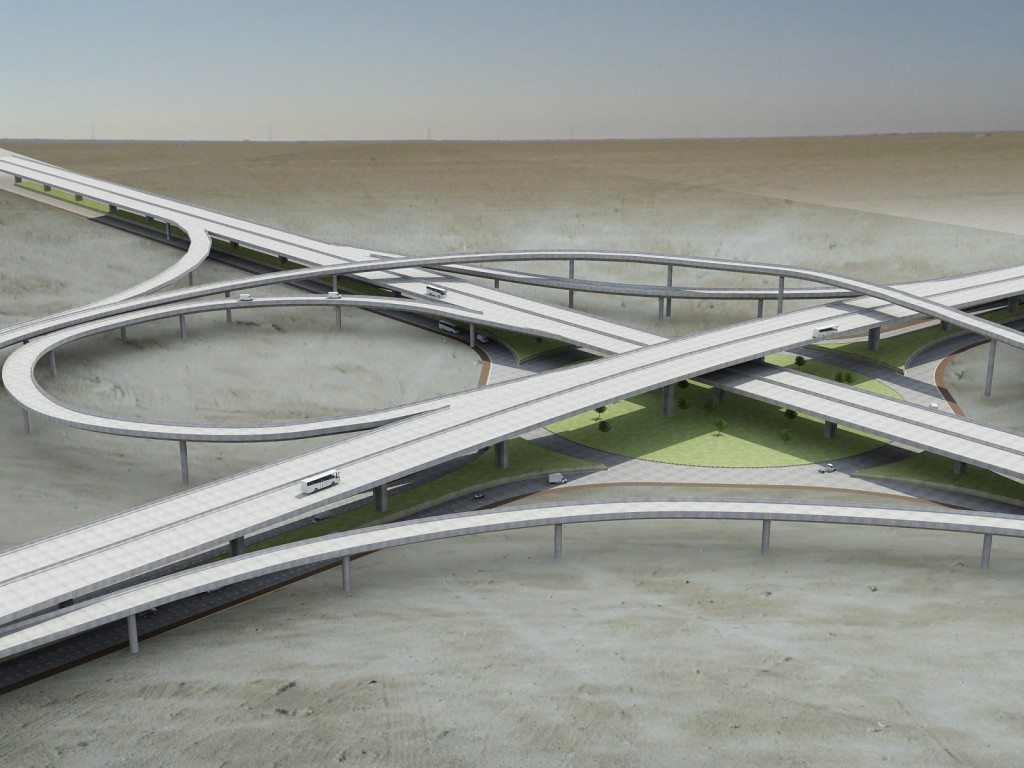Part of the strategic plan implemented by Kuwait’s Ministry of Public Works, the Jahra Development project will transform Kuwait’s existing Jahra Road into a single highway in five years.
Located in the western region of the country, the project comprises both road works and a number of utilities projects (see below).
The aim is to segregate bypass traffic from local traffic flows, therefore minimising congestion and enhancing the safety of the road. The completed project also includes provision to cope with the expected increase in traffic
over the coming years.
“Once completed, the project will have countless benefits for the people of Kuwait,” says project engineer, Abdullateef Shamsah.
“It will improve access to social infrastructure such as schools and health centers and enhance social interaction and mobility, which are important for social and economic development. Creating an efficient motorway system will also allow better access to markets, by creating an efficient transportation network which will facilitate the transport certain types of goods such as construction materials,” he continues.
With the plans originally prepared in 2000, the project wasn’t initiated until September 13 2010 due to scale of feasibility studies and design planning required.
During the first decade of the plan, Kuwait addressed issues in the roads and transportation sector before composing a sustainable and comprehensive ten year national strategy to facilitate the construction of the motorway network from 2010 to 2020.
Valued at US$966.58m, the road will be delivered in five phases (see box). With $777.25m dedicated to the construction of structures. The main elements are the development of a 21km motorway, a 1km tunnel and an elevated 7km length of motorway viaducts, comprising eight lanes (three lanes and one security lane in each
direction) with 8,500 precast segments.
The Louis Berger Group, in collaboration with Pan Arab Engineering Consultants, has been appointed project designers and consultants, along with the Arab Contractors Company (ACC) and Othman Ahmed Othman as the project contractor.
“In addition to transforming the Jahra Road into a unified highway, the project also includes a multitude of utilities and drainage structures along the length of the route.
“These will require relocation, protection, and refurbishment; in an integrated effort to improve and develop the current infrastructure,” Shamsah explains.
Safety first
Already considered one of the most efficient motorway systems in the world in terms of design, construction management and safety, the Jahra Road Development is described as an “integral cog” in the state’s vision to achieve a safe and sustainable transportation system.
“The challenge facing the State of Kuwait today is how to balance between the increasing demand for smooth transportation and providing an efficient supply of roads and transport services that can cater to society’s needs and the state’s plans to transform the country into a global financial and commercial hub by 2035,” says Shamsa.
The strategy is supported by a robust executive program highlighting all ministerial duties and the involvement of businesses and stakeholders. The program also includes a number of mechanisms under the United Nations Development Program; intended to evaluate the implementation of the project, under the supervision of the General Traffic Department and in cooperation with the related ministerial departments.
“We are proud to design, implement and execute a robust motorway system that connects all regions and neighbourhoods with one another, allowing a smooth and consistent traffic flow across all parts of the city, which in turn can positively affect the country on social and economic level,” Shamsa concludes.
Renovation works will include :
Relocation of waterpipes: The water lines extending under the Jahra Road will be relocated and new water lines constructed. Existing lines will be removed after the completion of the new ones.
Relocat ion of sewerage system: In addition to moving the existing system located under interchanges, works will also include the preservation of the depressed sewerage pipeline located between Al Aridiya Station to the pump
station known as A7, and Mohammed bin Al Qassim Road to Al Ghazali Street, in addition to relocating a 800 meter pressurised 2000 mm pipeline, next to Al Khalil bin Ahmed Road.
Preservation works and relocat ion of gas lines: After Kuwait Oil Company constructs the new gas line – from
Al Ahmadi Port to the desalination plant, through the Airport Road – the current gas line will be extended under the Jahra Road from the UN roundabout to Al Shuwaikh station, based on a request put forward by the Kuwait Oil Company.
Relocat ion of Low Tension (LT) and High Tension (HT) cables: Cables will be moved from locations where bridges will be constructed. A bypass facility will be construction for electricity and telephone cables.
Relocation of Telephone services: Telephone lines from a number of locations will be relocated and new lines built.
Agriculture works: In addition to basic landscaping at a number of locations, an integrated irrigation system will be built for the entire project where desalinated water will be used to irrigate plantations.
Rainwater drainage system: The new system will ensure that water is immediately cleared from highways, to enhance safety.

